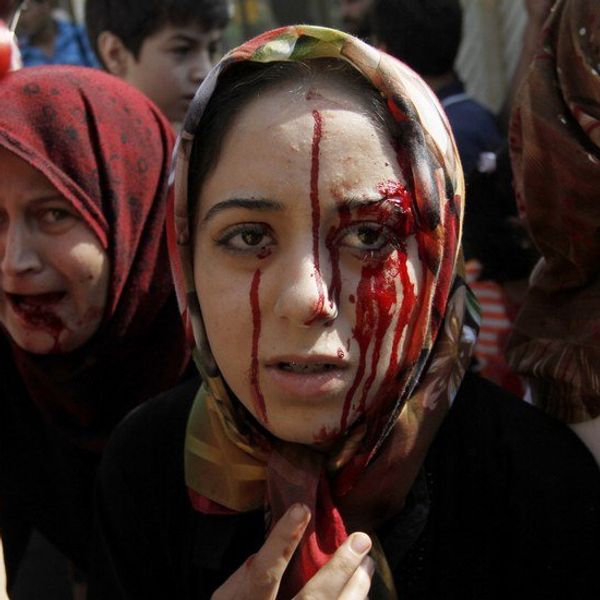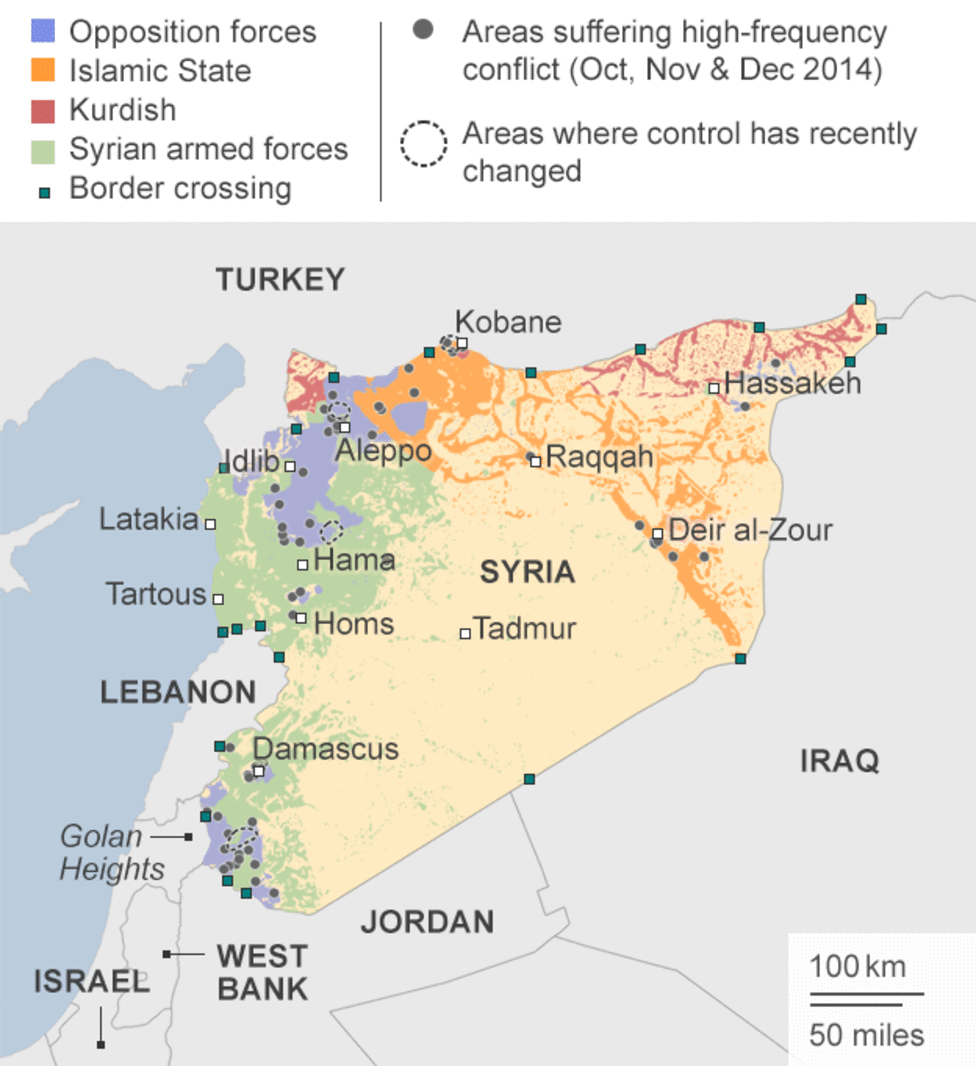March 2011: Protests erupt in the city of Deraa (in southern Syria) after a case of brutality by the government against two teenagers in interrogation. The people had objected to the corruption of President Bashar al-Assad and his Baath party for years, but this event was the turning point. During the peaceful protests, police forces opened fire, resulting in the deaths of several demonstrators. Even more citizens began to protest in response to this. Soon, protestors began carrying weapons in order to defend themselves, and from there groups began fighting outright. The rebels started forming units against the government to struggle for control of major cities around the country.
As the fighting progressed, it was clear there were not only two sides involved. Various other groups vying for power and territory added to the conflict, such as Kurdish forces and the Islamic State, and the Sunni/Shia divide has played a large role as well. Also in the mix are various foreign powers: Russia, Saudi Arabia, Iran, and the United States, who all have a vested interest in the outcome of the war. These countries have contributed financial and military support on all sides, perpetuating the conflict. Although it is hard to have exact figures, it was estimated that 250,000 people had been killed in Syria by August 2015.
Most of our exposure to the war is through coverage of the refugee crisis it has created. An estimated 11 million people in Syria have been displaced over the past 5 years. Most of these have fled to neighboring countries, often Turkey, Jordan, and Lebanon, and others have been internally displaced within Syria. Today, Syria is left with only 73% of its pre-war population. Nearby countries, however, already had problems of their own, and all are struggling to provide for refugees in addition to their own people. Unfortunately, some refugees stay in camps with little food and poor hygiene, where the previously wounded can easily contract infections, and there are never enough volunteers to provide adequate healthcare. But most are trying to adjust to a new life in an unfamiliar country.
The conflict in Syria has also raised the humanitarian crisis of using citizens in warfare. Every group in the war, including the Syrian government, has been caught by the Human Rights Council purposely targeting civilians in an effort to make their opponent(s) surrender. This includes bombings, poisonous gasses, and siege-like tactics to starve out entire cities.
It is hard to definitively say what needs to be done to hasten the end of this bloody conflict. While I generally think everyone should mind their own business, the Syrian Civil War vexes me. As humans, it is easy to say that we should try to preserve as much human life as possible, but are any countries actually willing to lend aid to Syria? And would foreign intervention even help anyway? Syrian-led peace negotiations would be ideal, but considering the fighting has been going on for over five years the chances for a peaceful end to this conflict are rapidly declining. We could not, however, trust one or even a few outside countries to help put Syria back together, because they would all make the decision for their own benefit. I think all the United States can do is help those we are able to, knowing that if we were in a similar situation we would also desperately seek asylum for ourselves and our families.






















